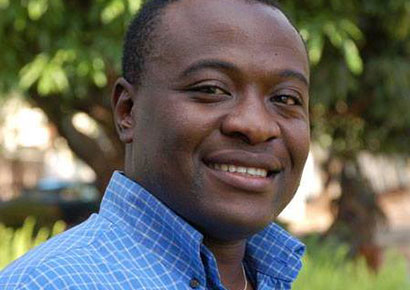Zimbabwe | 50% of gay men assaulted and 64% disowned

GALZ Director, Chester Samba
Zimbabwe’s LGBTI rights group, GALZ, has released a troubling report that analyses trends emerging from the violations of LGBTI people’s rights in the country between 2012 to 2017.
The Analysis of Human Rights Violations Against LGBTI Persons in Zimbabwe report draws data from a total of 170 violations extracted from 104 actual cases compiled and categorized by GALZ into 12 types.
The 12 recorded categories were assault, threats, outing, discrimination, police harassment, unlawful detention, disownment, blackmail, displacement, unfair labour practice, hate speech and invasion of privacy.
The report showed that of these recorded categories, the most common violations were assault (19%), threats (15%), blackmail (15%) and being outed (11%). The study also found that the country’s government was “a key actor in influencing change in terms of how issues of sexual orientation and gender identity are addressed both at state level and among the ordinary Zimbabweans.”
The analysis noted that gay men were predominantly the main targets in the recorded categories. Sixty-one percent of gay men were targets of these violations, compared to one percent of bisexual individuals.
The study does, however, acknowledge: “It is difficult to confirm, with certainty, the reason for this distribution, though it is generally believed that gays and lesbians represent the greatest proportion of the LGBTI community in Zimbabwe. At the same time, it also plausible to conclude that this could be the function of vulnerability on the part of these particular LGBTI subgroups.”
In terms of the most common and highest recorded form of violation (assault), about 50% of gay men said they had been assaulted. The instances of assault took place at various settings, though mostly in public spaces such as bars, commuter taxi ranks or gatherings. Vulnerability to assault was greatest where LGBTI people are in the presence of a crowd.
Disownment of an LGBTI person by their family after they had been outed accounted for 7% of all recorded violations. Sixty-four percent of gay men said they were disowned by their relatives after being outed to them, followed by lesbian individuals at 27%.
The highest number of police harassment and detention cases were recorded in the 2012-13 violations reports, totaling 25. Forty-two percent of recorded cases were from gay men who were targets of police violation. Transgender people were also significant targets of police harassment (25%). The analysis observed that police officers had the tendency of “taking the law into their own hands”, verbally and physically attacking LGBTI persons. Such occurrences were recorded as happening at police stations while the complainants were in custody and in public spaces.
The report noted a steady rise in the figures of recorded cases between 2012 and 2014 and a slump in the succeeding two years, 2015 to 2017. “Gay men fell victim the most to threats, though however this is also proportionate to their larger numbers of recorded cases relative to other gender identities. On the other hand, transgender men and women – though with fewer recorded cases in the period under review – were victim to the second highest number on threats,” the study said.
When it comes to the Zimbabwean media’s coverage of LGBTI issues, the report found that sensationalist headlines and biased perspectives were all too common. It observed “that government owned media has tended to report more negatively about issues relating LGBTI persons compared to the privately owned media, which seemed to be more tolerant and objective in their reportage.”
The study concludes that it reflects “a less than satisfactory picture of the LGBTI situation in the country” and noted that, “the number of violations is just the tip of the iceberg in relation to the many other incidences that are taking place unreported within the communities where LGBTI persons live.”
The report includes a series of recommendations for the government, the police, Zimbabwe human rights bodies, the families of LGBTI people and members of the community themselves. These range from ensuring that the law is not used to target LGBTI people and for victims of abuse to report incidents to the authorities.
“We want to continue to generate evidence of the violations that the community faces [so] that our advocacy is backed by evidence,” GALZ Director Chester Samba told Mambaonline. “Creating this evidence ensures that policymakers and institutions such as the Zimbabwe Human Rights Commission can also take note of the violations that are experienced by LGBTI people.”
Zimbabwe’s 2013 Constitution bans same-sex marriage but does otherwise provide protections of civil liberties and human rights, at least in theory. Laws criminalising homosexuality, with penalties of up to three years in jail, remain on the statute books and have yet to be challenged in court as unconstitutional.
Under homophobic former President Robert Mugabe’s 37 year rule, members of Zimbabwe’s LGBTI community were subjected to ongoing abuse and crackdowns. Since Mugabe’s forced resignation in November last year there have been some encouraging developments, including a recent meeting between the governing Zanu-PF party and GALZ.
Leave a Reply